Conducting a Writing Cohort with the Support of the Bonnie Campbell Hill AwardBY KATIE SCHRODT
CLA Blog: Knowledge is Power: Mirrors, Windows, and Sliding Glass Doors BY MELISSA ANTINOFF 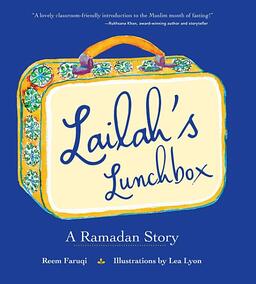 I was honored to be named one of the 2020 Bonnie Campbell Hill National Literacy Leader Award recipients. My project was to continue my equity work as a literacy leader. It is imperative that every classroom in every school district has books with BIPOC characters by BIPOC authors. Students need to see themselves in books (like a mirror) and see the rest of the world as well (like looking out a window). Books are the perfect gateway for this (like a sliding glass door that automatically opens and invites you in). While I have learned so much from the conferences I have attended so far this year, the most important piece of knowledge I’ve gained is that my equity work has spread from my school to my community. I now have language to teach my friends and family how to advocate for BIPOC and LGBTQ+ communities. Recently, the fervor over Dr. Seuss Enterprises no longer publishing 6 books with racist imagery was all over my social media feeds. I was shocked and disappointed by friends that thought the company was “going overboard.” One friend even said, “If you don’t like it, don’t buy it.” I replied with pictures of the offensive illustrations by Seuss, explaining why those 6 books were no longer going to be published. I used the analogy of windows. mirrors, and sliding glass doors to explain how none of those pictures have a place in our society. As librarian Leslie Edwards said, “A book published in 1937 with images that are considered racist by the group publishing the book...doesn't have a place in an elementary classroom or school library in 2021. Nostalgia isn't a reason for keeping a book. In schools and school libraries, the collection should reflect diverse viewpoints in an age- and developmentally appropriate manner. These diverse viewpoints should not demean or diminish others.” Some of my colleagues refuse to even touch the subject of racism and prejudice with their students, much less have diverse books in their classroom libraries. Last year, when I used our language arts budget for diverse books for each of my grade level’s classroom libraries, a colleague told me that the money was better spent on other materials. After attending my workshop on Culturally Responsive Teaching Through Diverse Literature, she changed her mind. She now could now understand the importance of a diverse library and how it will help her reach all of her students. I recently read aloud Lailah’s Luncbox, by Reem Faruqi. It’s a book about a girl fasting for Ramadan. I have a Muslim student in my third grade class that fasts. The other students now have an appreciation for her culture and she was so happy to share her knowledge with her classmates. Mirrors, windows, and sliding glass doors. With all of this professional and personal development, I now have the language and knowledge to change people’s minds. My students, colleagues, and community do, too. Katie Schrodt is a professor of literacy at Middle Tennessee State University where she works with pre-service and serving teachers. Katie’s research interests include reading and writing motivation with young children. She is one of the 2020 Bonnie Campbell Hill Award recipients. Melissa Antinoff is the 2019 Burlington County Teacher of the Year. She has been an elementary educator since 1992. Melissa specializes in developing a love of reading in her students. Planting Seeds for Professional Involvement with Bonnie Campbell Hill BY KATHRYN WILL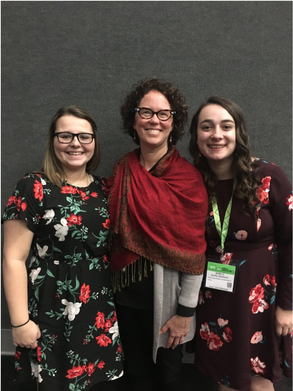 2018 NCTE Annual Convention, Houston 2018 NCTE Annual Convention, Houston Winning the 2018 Bonnie Campbell Hill National Literacy Leader Award for my clinical work with preservice teachers in our local schools allowed me to support the attendance of two university students, Emily and Allicia, at the 2018 NCTE conference in Houston. They were astounded by the warm welcome they received at the CLA breakfast that year, the sessions they attended, and of course the free books signed by authors. To say they were gobsmacked would be accurate. Upon our return from the conference, they shared their experience in a student gathering on campus with others where it was well received and created a buzz in the teacher education program for quite a time afterwards. They graduated in the Spring of 2019, accepting their first teaching positions in nearby schools. Because of the positive experience they had at the 2018 conference, they attended NCTE 2019 in Baltimore as seasoned conference attendees, focusing in on their current classroom needs and of course gathering books for their classroom libraries. After starting a YA book club in the summer of 2019, we continued to meet together virtually throughout the pandemic--sometimes for our book club that grew out of the initial NCTE experience, and other times to navigate classroom or learner challenges. When we met a few weeks ago, I asked them about the initial experience of attending NCTE with me. Emily commented that the experience opened her eyes to the importance of making connections within the profession at a national level. Allicia added that she never would have considered going to something like NCTE if she had not gone with me. It made her dream bigger as a teacher and as a person. They both agreed they will attend again. I am so grateful that winning this award allowed me to plant and nurture the seeds of professional involvement for these teachers in the early stages of their careers. I hope there are opportunities for me to continue this in the future with other preservice teachers. Catching Up with Quintin: A Bonnie Campbell Hill Literacy Leader Award Update BY QUINTIN BOSTIC 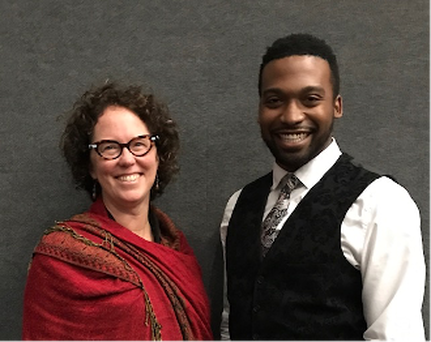 Kathryn Will (left) & Quintin Bostic (right) Kathryn Will (left) & Quintin Bostic (right) When he won the award in 2018, Quintin was preparing to teach his first course in elementary writing instruction for undergraduate preservice teachers. Although his time in the Ph.D. program is coming to an end, the doors to opportunities are just beginning to open. Shortly after receiving the Bonnie Campbell Hill Literacy Leader Award, Quintin began to implement his PLC series. The 3-day series supported teacher trainers and teachers in using various strategies to have critical conversations with students through picture books in their classrooms. The professional development program addressed topics like #BlackLivesMatter, LGBTQIA+ families, multilingualism, varying abilities, and more. Attendees of the professional development supported students from preschool to third grade in an inner-city school district in Atlanta, Georgia. A major highlight from the project was that because it was so well received, the project was further funded through a local agency for the continued support of teachers in the local area. Through the Bonnie Campbell Hill Literacy Leader Award, not only was Quintin able to implement the PLC series, but he was also able to attend the annual convention of the National Council of Teachers of English (NCTE) in Houston, Texas in 2018, attend the Children’s Literature Assembly’s breakfast, and attend the all-attendee event that featured author Sharon Draper. Because of the award, Quintin has gained a platform that has helped him to continue to advance in his academic career.  Quintin Bostic Quintin Bostic Quintin is currently wrapping up his Ph.D. in Early Childhood and Elementary Education at Georgia State University. His research focuses on how race, racism, and power are communicated through the text and visual imagery in children’s picturebooks. Additionally, in 2020, Quintin was named co-chair of the National Association for Professional Development Schools (NAPDS) Anti-Racism Committee. The association – which provides professional development, advocacy, and support for school-university partnerships – first established the Anti-Racism Committee in response to racial violence in 2020. As co-chair, Bostic will work to foster a culture of equity and inclusion within the association, and in the communities it supports; create and implement anti-racist policies, practices, and systems; and recommend and implement tools and approaches for continued reflection and progress. “Our goal is to address racism by providing teachers and community partners with the necessary resources to do so,” Bostic said. “These resources vary, ranging from trainings to resources, that can help challenge and overcome racist ideologies that are embedded throughout society.” He also just started a new career with Teaching Lab, in which is serves as a Partnerships Manager. Quintin is beyond thankful to Bonnie Campbell Hill, her family, the Children’s Literature Assembly, and everyone who makes this award possible. “There are so many people, like me, who would have never had the opportunity to have so many experiences without the support, love and care of people like the Bonnie Campbell Hill Award family. I am so appreciative, and I look forward to seeing what amazing things will come out of this award in the future.” Kathryn Will is an Assistant Professor of Literacy at the University of Maine Farmington (@KWsLitCrew). She is passionate about sharing the power of children's literature with her students. She is one of the 2018 Bonnie Campbell Hill Award recipients, a member of the 2019 Notables Committee, and current chair of the Notables Committee.
Quintin Bostic is a Ph.D. Candidate at Georgia State University. He is also Partnerships Manager at Teaching Lab and co-Chair of the NAPDS Antiracism Committee. His personal website is https://drquintinbostic.com. Editorial Note: Check out our April 6 Post about the Bonnie Campbell Hill Literacy Leader award and look out for another award recipient update post next week. If you are interested in applying for this year's award, visit the Bonnie Campbell Hill Literacy Leader Award page for the application details. BY JENNIFER M. GRAFF & JOYCE BALCOS BUTLER, ON BEHALF OF THE BIOGRAPHY CLEARINGHOUSE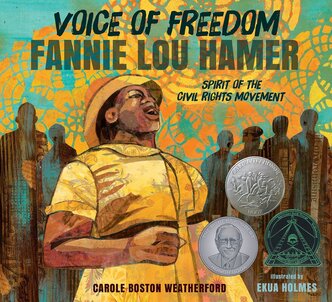 Our current celebration of poetry as a powerful cultural artifact and the national dialogue about voting rights generated by the introduction of 300+ legislative voting-restriction and 800+ voting-expansion bills in 47 states have inspired a rereading of the evocative, award-winning picturebook biography, Voice of Freedom: Fannie Lou Hamer, Spirit of the Civil Rights Movement. Written by Carole Boston Weatherford, illustrated by Ekua Holmes, and published by Candlewick Press in 2015, Voice of Freedom offers a vivid portrait of the life and legacy of civil rights activist, Fannie Lou Hamer. Her famous statement, “All my life I’ve been sick and tired. Now I’m sick and tired of being sick and tired” (p.18) serves as a testimonial to the psychological and physiological effects of the injustices and violence inflicted upon Hamer and other Black community members in Mississippi. Additionally, Hamer’s statement signifies her tenacity, conviction, and unwavering fight for voting rights, congressional representation, and other critical components of racial equality until her death in 1977.
Below we feature one of two time-gradated teaching recommendations included in the Create section of the Voice of Freedom book entry. Youth As Agents of Change in Local CommunitiesWeatherford begins Voice of Freedom with Hamer’s own words: “The truest thing that we have in this country at this time is little children . . . . If they think you’ve made a mistake, kids speak out.” Pairing Hamer’s advocacy detailed in Voice of Freedom with contemporary youth activists, guide students in their exploration of how they can (or continue to) be agents of change in their communities.
To see more classroom possibilities and helpful resources connected to Voice of Freedom: Fannie Lou Hamer, Spirit of the Civil Rights Movement, visit the Book Entry at The Biography Clearinghouse. Additionally, we’d love to hear how the interview and these ideas inspired you. Email us at [email protected] with your connections, creations, and questions. Jennifer M. Graff is an Associate Professor in the Department of Language and Literacy Education at the University of Georgia where her scholarship focuses on diverse children’s literature and early childhood literacy practices. She is a former committee member of NCTE’s Orbis Pictus Award for Outstanding Nonfiction K-8, and has served in multiple leadership roles throughout her 15+ year CLA membership. Joyce Balcos Butler is a fifth-grade teacher in Winder, Georgia, where she focuses on implementing social justice learning through content areas. She is a National Writing Project Teacher Consultant, a Red Clay Writing Fellow at the University of Georgia, and a member of CLA. BY NANCY J. JOHNSONOnce again, CLA is excited to invite our member-leaders who are
Classroom Teachers
or Literacy Coaches or Teacher Educators to apply for the Bonnie Campbell Hill National Literacy Leader Award. Whether face-to-face, virtual, or hybrid, there is no doubt this past year has tested your teaching in ways that defy imagination. We salute your knowledge, creativity, innovative pedagogy, and re-imagining of resources as you've keep literacy learning at the heart of your students' lives. And now it's time to channel your hopes and dreams as a teacher of readers and writers by applying for the 2021 Bonnie Campbell Hill National Literacy Leader Award. Who is Bonnie Campbell Hill and what is this award?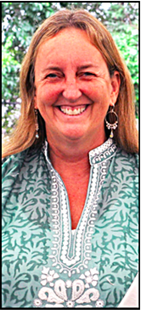 Bonnie Campbell Hill was teacher, literacy leader, reader and writer, and a good friend of CLA. She was also an internationally known educational consultant specializing in literacy instruction and assessment. Bonnie worked extensively with individual schools and school districts, mentoring teachers around the world, and collaborating with them at state, national, and international conferences. Her teaching and writing (including nine books and numerous articles) centered around literature circles, writing instruction, classroom-based assessment, developmental continuums, portfolios, and student-led conferences. Following a cancer diagnosis in 2010, Bonnie dreamed of opportunities to continue her commitment and fierce advocacy for teachers as literacy leaders. That fall, she gathered family, friends, and colleagues to help launch Bonnie's Big Idea, a project that has continued to maintain her literacy legacy. The Bonnie Campbell Hill National Literacy Leader Award is a direct outgrowth of Bonnie's Big Idea. It recognizes two literacy leaders each year, and is generously funded by Dr. Hill's family. Over the past ten years, CLA has been grateful to serve as the home for this award. What does this award mean for you?This award recognizes your role as a literacy leader and provides funding ($2,500 plus $125 in professional materials published by Heinemann) to support your own big literacy-related ideas. We recognize the unprecedented challenges you've faced as a literacy leader, whether in your classroom (virtual and in-person), your school, or even your greater educational community. Now it's time to dream about -- and create -- opportunities that turn your challenges, your questions, your professional needs, even your hopes and dreams into reality. You can do that through a Bonnie Campbell Hill National Literacy Leader Award. What goes into your application? How do you apply?Start with your own big ideas about literacy learning/teaching and professional development. If you were granted $2,500, how could you use that money to support your work as a literacy leader for grades K-8? Your application must include a proposed plan, a budget, your resume or vita, and a letter of support from a supervisor. A professional development proposal could focus on attending a workshop, class, or conference on your own or with colleagues. You might even take advantage of online classes, conferences, and events. Without having to budget for travel, you could create a dynamic proposal with enough funds to support an entire team of colleagues learning together! Perhaps you've always wanted to sponsor a professional book study or you've dreamed of doing some mentoring in your school or community. Now is the time to pursue those plans. Don't worry if your proposal includes events that eventually get cancelled (i.e. attendance at an in-person conference). Go ahead and propose plans as if they will happen. Then, if the event is cancelled, you can use the funds for the following year, or even apply them to a virtual event. In light of ongoing pandemic-related unknowns, we're offering some flexibility in how (and when) you use the award monies. Be creative as you dream up your proposal, but be sure to use the award requirements to prepare your application. These include: membership in both NCTE and CLA and submission of all application materials no later than August 15, 2021. The BCH National Literacy Leader Award application is available here (with further information on the CLA website). If you're unsure whether you and your ideas are award-worthy, you might find it valuable to "meet" some of the prior BCH Award recipients and learn about their proposals. In addition, keep your eyes open for blog post from past recipients in the coming weeks. Feel free to send questions (and eventually your proposal) to Nancy Johnson at njjohnson0303@gmail. Remember, applications are due by August 15th. Nancy J. Johnson is a Professor Emeritus of Children's/Young Adult Literature and English Education at Western Washington University. She is the Bonnie Campbell Hill Award Committee Chair for CLA. |
Authors:
|
CLA
About CLA
|
Journal of Children's Literature
Write for JCL
|
ResourcesCLA-sponsored NCTE Position Statements
|
Members-Only Content
CLA Video Library
|
© COPYRIGHT 2018.
ALL RIGHTS RESERVED |

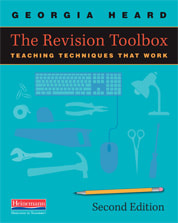
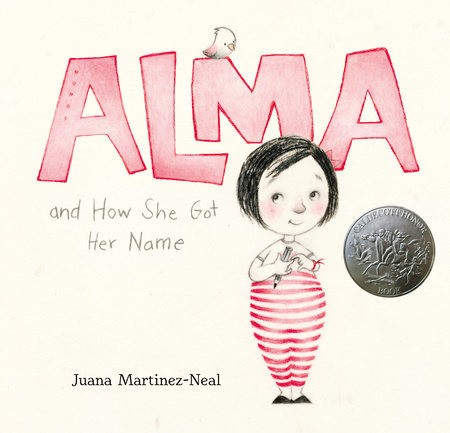
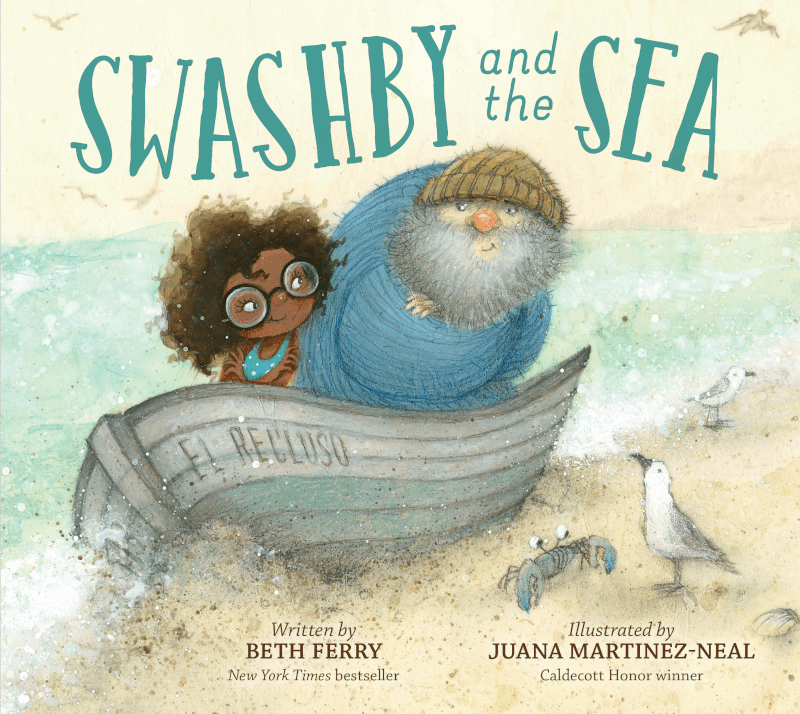
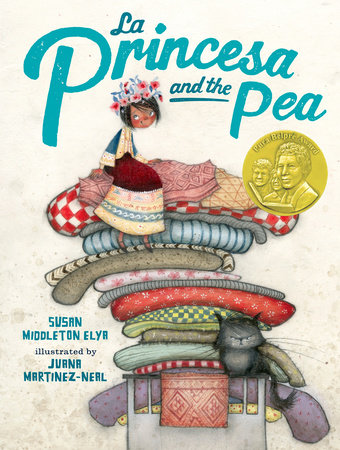
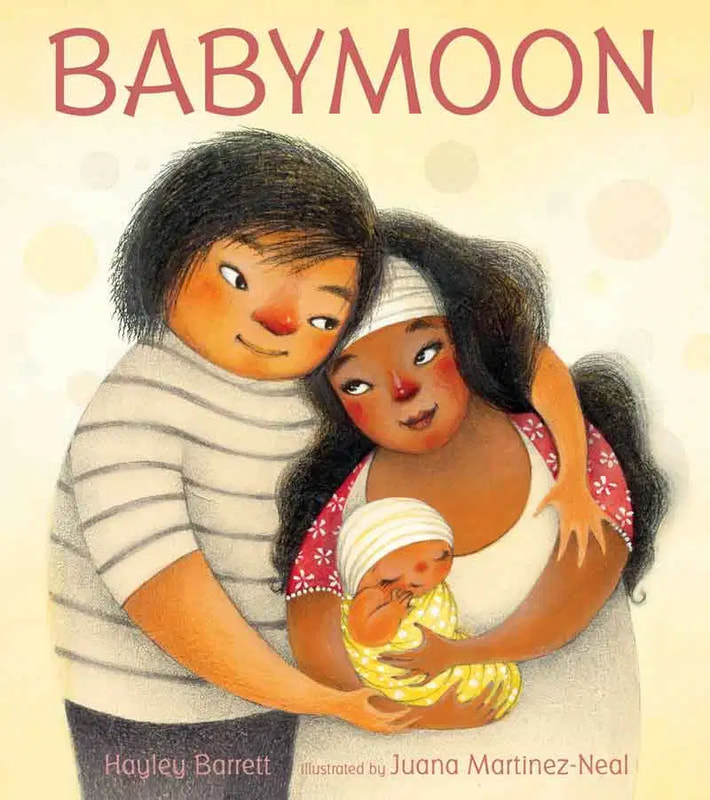
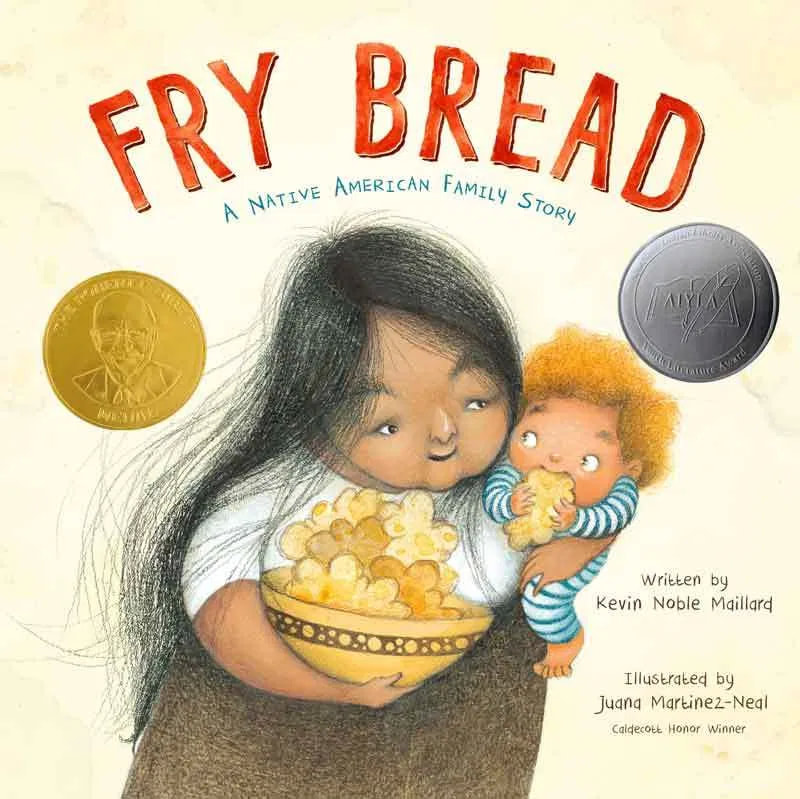
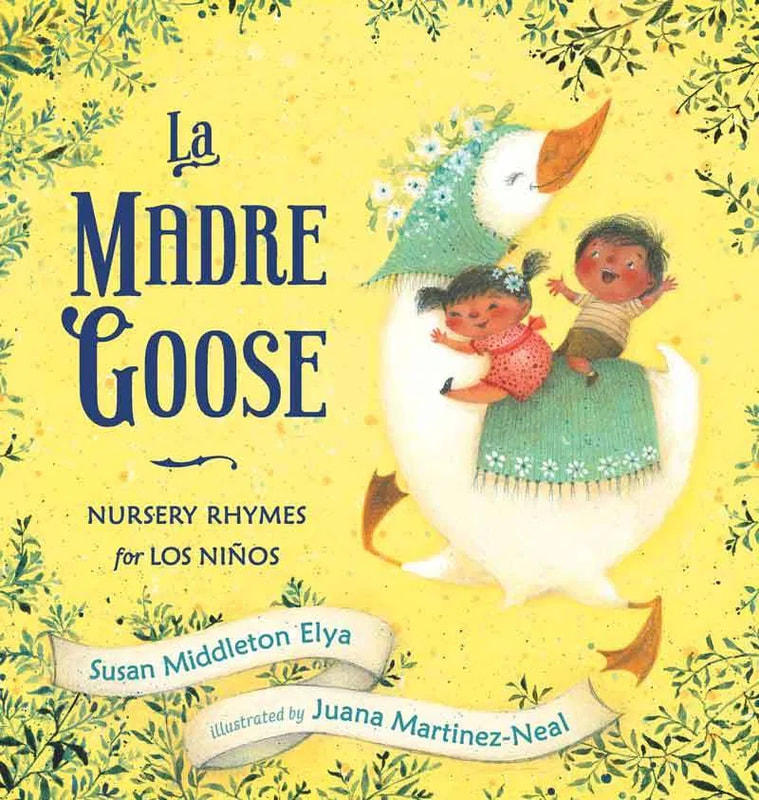
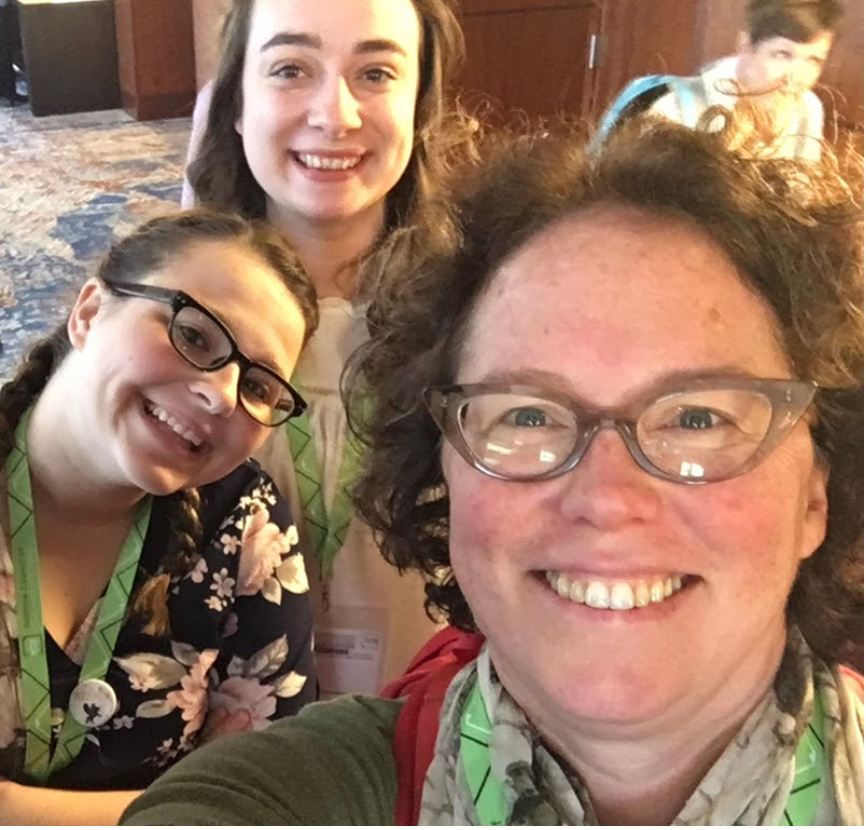
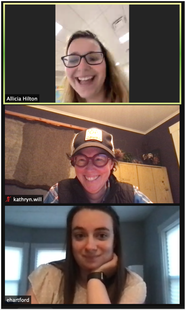
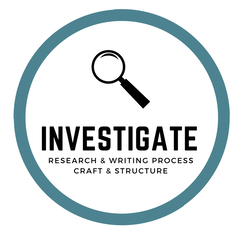



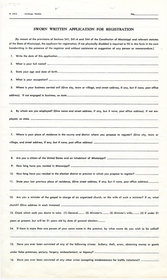
 RSS Feed
RSS Feed